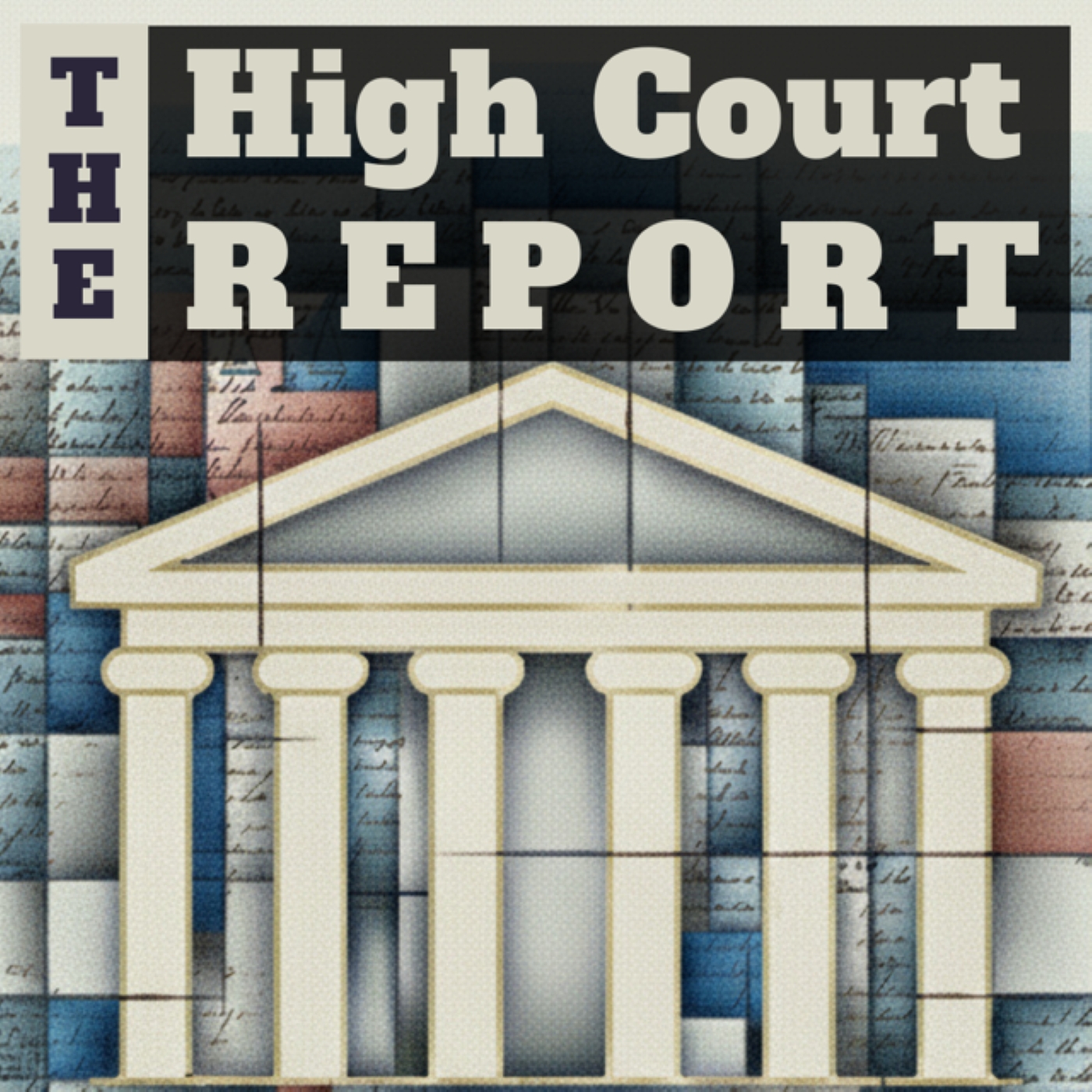Episode 101
Opinion Summary: Williams v. Reed | Date Decided: 2/21/25 | Case No. 23-191
Case Info: Williams v. Reed | Date Decided: 2/21/25 | Case No. 23-191
Link to Docket: Here.
Question Presented: Whether exhaustion of state administrative remedies is required to bring claims under 42 U.S.C. § 1983 in state court.
Holding: Where a state court’s application of a state exhaustion requirement in effect immunizes state officials from §1983 claims challenging delays in the administrative process, state courts may not deny those §1983 claims on failure-to-exhaust grounds.
Result: Reversed and remanded.
Voting Result: Justice Kavanaugh delivered the opinion of the Court, in which Chief Justice Roberts and Justices Sotomayor, Kagan, and Jackson joined. Justice Thomas filed a dissenting opinion, in which Justices Alito, Gorsuch and Barrett joined as to Part II.
Link to Opinion: Here.
Oral Advocates:
- For petitioners: Adam G. Unikowsky, Washington, D. C.
- For respondent: Edmund G. LaCour, Jr., Solicitor General, Montgomery, Ala.
Website Link to Oral Argument: Here.
Apple Podcast Link to Oral Argument: Here.
Transcript
Reed, case number 23.
Speaker A:191.
Speaker A: USC Section: Speaker A:Justice Kavanaugh delivered the opinion of the Court in which Chief Justice Roberts and Justices Sotomayor, Kagan and and Jackson joined.
Speaker A:Justice Thomas filed a dissenting opinion in which Justices Elite, Oe, Gorsuch, and Barrett joined.
Speaker A:As to Part two, please note that this summary is read by an automated voice.
Speaker B:Justice Kavanaugh's majority opinion Petitioners are unemployed workers who contend that the Alabama Department of Labor unlawfully delayed processing their state unemployment benefits claims.
Speaker B: USRC Section: Speaker B:The Secretary moved to dismiss on several grounds, including that the state trial court lacked jurisdiction because the claimants had not satisfied the relevant statutes strict administrative exhaustion requirement.
Speaker B:See Alabama Code Section 25, 4.
Speaker B:95.
Speaker B:The state trial court granted the Secretary's motion and dismissed the complaint, leaving the claimants in a catch 22 unable to sue to obtain an order expediting the administrative process because they had not yet completed the process allegedly being delayed.
Speaker B: unds, concluding that section: Speaker B: state officials from section: Speaker B: rts may not deny those Section: Speaker B:Pages 5 to 10A.
Speaker B: subject to suit under section: Speaker B:Felder von Casey, 487 U.S.
Speaker B:131, 139.
Speaker B:Thus, in Howlett v.
Speaker B: this Court held that section: Speaker B:496 U.S.
Speaker B:356, 366.
Speaker B:And in Haywood vs.
Speaker B: ners was preempted by section: Speaker B:556 United States 729, pages 5 to 6b.
Speaker B: unlawful delays under section: Speaker B: f claims brought under section: Speaker B:Under this court's precedence, Alabama cannot apply such an immunity rule.
Speaker B:Page 7C.
Speaker B:According to the Secretary, the jurisdictional nature of Alabama's exhaustion provision distinguishes it from the state rules at issue in Haywood and Howlett.
Speaker B: dants from a class of section: Speaker B:In Haywood, for example, the court stated that the jurisdictional status of New York's rule did not insulate it from preemption.
Speaker B:556 US at 7:39 to 7:42.
Speaker B:Next, the Secretary suggests that any delays in the state administrative process can be cured by claimants seeking a writ of mandamus from the state courts to compel the Department to act more quickly.
Speaker B:It is not evident, however, that mandamus is available to the claimants here.
Speaker B: ss before suing under section: Speaker B: intiffs may SUE under section: Speaker B:Pages 8 to 10 reversed and remanded justice Thomas's dissenting opinion.
Speaker B:Alabama law requires claimants seeking unemployment benefits to exhaust their administrative remedies before suing over those benefits in state court petitioners, the claimants here failed to complete that process before they sued under Revised Stat.
Speaker B: §: Speaker B: §: Speaker B:The Alabama Supreme Court accordingly held that it lacked jurisdiction over the suit.
Speaker B:That holding was plainly permissible as a matter of first principles.
Speaker B: o provide a Forum for Section: Speaker B:The Court concludes otherwise by endorsing and has applied theory of futility that is both forfeited and meritless.
Speaker B:Moving our jurisprudence even further off course, I respectfully dissent.
Speaker A:Case Implications Based on this Supreme Court decision, state agencies and courts may need to modify their administrative exhaustion requirements to create explicit exceptions for cases challenging systemic delays in the administrative process itself.
Speaker A: ead to an increase in section: Speaker A:As plaintiffs may now more readily access state courts without fully exhausting administrative remedies and delay based challenges, state legislatures might respond by explicitly codifying timeframes for administrative actions and creating streamlined procedures for challenging delays, potentially including express mandamus type remedies.
Speaker A:To avoid running afoul of this decision's catch 22 concerns, the decision's narrow focus on delay based challenges may result in a patchwork of state specific approaches to exhaustion requirements, with some states potentially maintaining stricter exhaustion requirements for other types of benefits related claims while carving out exceptions for delay challenges.
